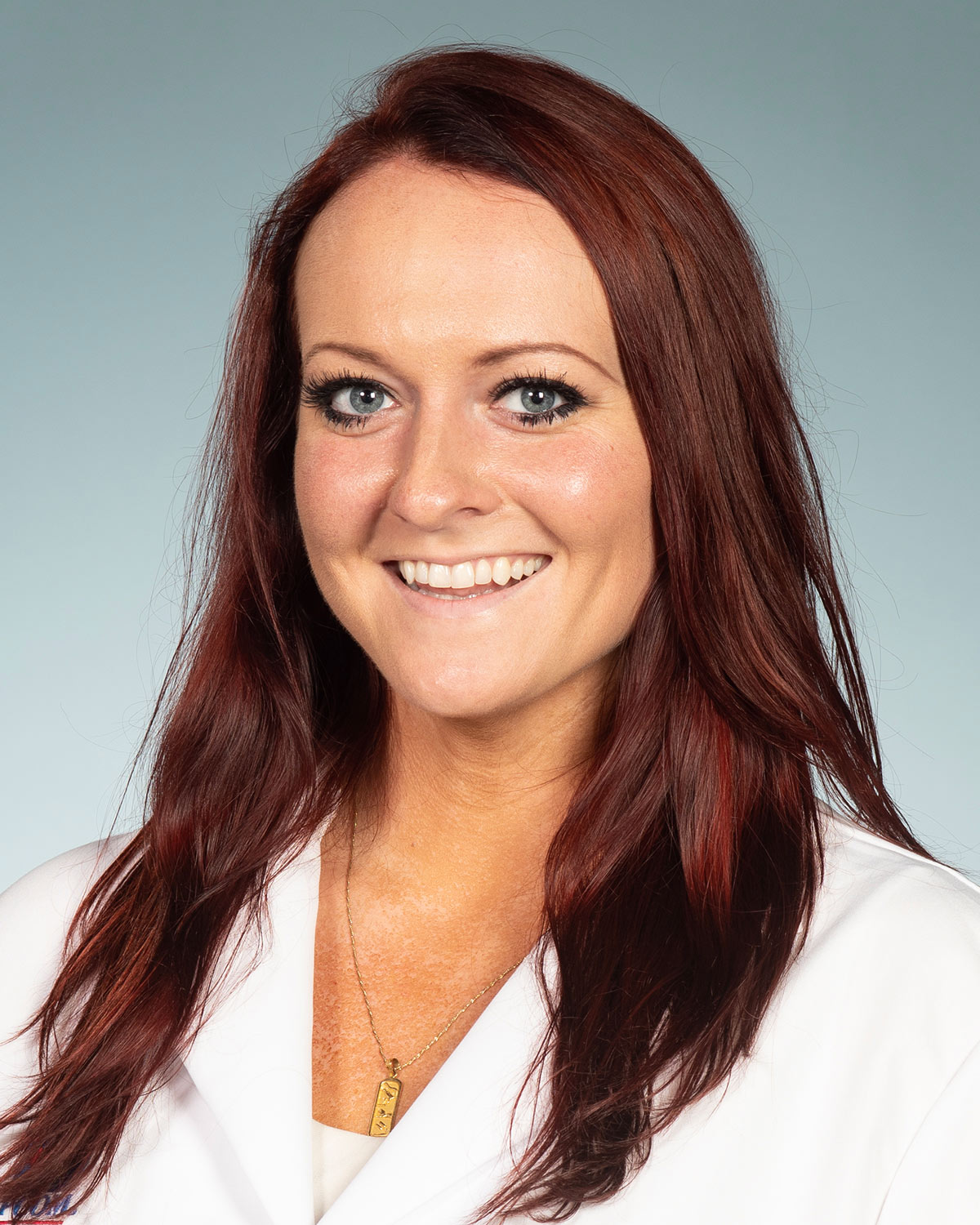JULIA LEES, PHARMD, BCACP
Assistant Professor
Ambulatory Care Clinical Pharmacist
Prior to graduate education, Dr. Lees performed research at Temple University School
of Pharmacy on gene therapy, specifically encapsulating DNA in cell cultures for potential
drug delivery in the hope of treating genetic disease.
Dr. Lees earned her Doctor of Pharmacy degree from Temple University in Philadelphia
in 2017. Furthermore, she completed a postgraduate year one clinical pharmacy practice
residency at UPMC Presbyterian Shadyside, the flagship location of a 40 hospital healthcare
system. Throughout her residency, she gained experience in central pharmacy operations,
administrative management with the department director, nutrition therapy and ordering
total parenteral nutrition, kidney as well as liver solid organ transplantation service,
and emergency medicine. She also completed two rotations in internal medicine in addition
to intensive care treatment for general medical as well as trauma departments.
Dr. Lees served in a comprehensive ambulatory care clinic as well as a global health
ambulatory care clinic, providing free health care and medications to an underserved
population. During her residency, her research project was titled "Preventable Hospitalizations
Caused by Medication: Financial Effect on Institution Reimbursement." She also taught
a didactic lecture on Hepatitis C antiviral treatment.
While earning her pharmacy degree and prior to residency, Dr. Lees worked at CVS Health
for three years, gaining expertise in prescription claims processing, medication inventory
and supply chain management, insurance billing and covered services, vaccine administration,
and medication counseling.
Prior to joining PCOM School of Pharmacy, Dr. Lees practiced as an ambulatory care
clinical pharmacist through the Department of Population Health at Jefferson Health
in Philadelphia for over four years. She practiced in collaboration with physicians,
nurse practitioners, and physician assistants for anticoagulation, comprehensive diabetes
management, dyslipidemia, opioid and/or benzodiazepine tapering, and urine toxicology
interpretation within primary care practice.
During this time, she presented at two national conferences regarding implementation
of an ambulatory pharmacy program through team-based care and addressing the opioid
epidemic in primary care using a collaborative practice model. She also participated
in a nation-wide antibiotic stewardship program through the Agency for Healthcare
Research and Quality, in partnership with John Hopkins Medicine and University of
Chicago.
Her clinical areas of interest also include HIV prophylaxis, transgender care pharmacotherapy,
osteoporosis management, calcitonin gene-related peptide inhibitors for migraine prophylaxis
and treatment.
Dr. Lees has also completed a pain management specialty certification, as well as
medications for opioid use disorder clinical training.
Dr. Lees is a passionate activist regarding medication access and affordability for
patients. She particularly enjoys helping patients receive life-saving medications
for free or reduced cost through the drug manufacturer programs or national grant
programs.
Education
- Bachelor in Chemistry, (2010-2013) Temple University, Philadelphia
- Doctor of Pharmacy, (2013-2017) Temple University, Philadelphia
- PGY-1 Pharmacy Resident, UPMC Presbyterian Shadyside, Pittsburgh
Awards
- Renzulli Scholarship (2016)
- American Pharmacists Association Achievement Award (2017)
Publications
Addressing the Opioid Epidemic in Primary Care Using a Collaborative Practice Model.
Institute for Healthcare Improvement National Forum – December 2020
Implementation of an Ambulatory Pharmacy Program through Team-Based Care. Collaborative
Family Healthcare Association Annual Conference – October 2020
V. D. Sharma, J. Lees, N. E. Hoffman, E. Brailoiu, M. Muniswamy, S. L. Wunder, and
M. A. Ilies “Modulation of pyridinium cationic lipid-DNA complex properties by pyridinium gemini
surfactants and its impact on lipoplex transfection properties”, Mol. Pharm., 2014, 11 (2), 545–559.

